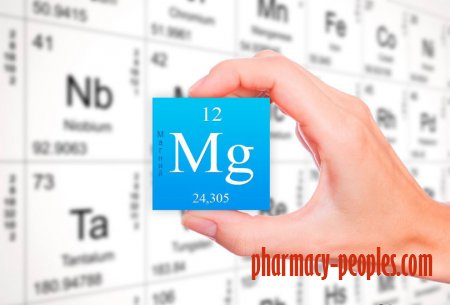WHY MAGNESIUM IS THE MOST POWERFUL RELAXATION MINERAL KNOWN TO MAN
Magnesium is a vital mineral for your health and one study, which was published in The Journal of Intensive Care Medicine, found that a deficiency of magnesium can cause numerous illnesses and diseases and even double the risk of death.
Magnesium is known to manage stress and improve sleep quality and actually, to be the most potent relaxation mineral. It also has many other health benefits which you need to be aware of and start including more magnesium-rich foods in your diet, especially since nowadays diets are very often lacking magnesium-high foods such as beans, nuts, greens and seaweed.
This mineral can be found in all the tissues of the body and plays an important role in about 300 enzyme reactions. It is necessary for providing energy, stabilization of membranes, relaxation of muscles, and supporting the work of various chemical pumps, and a lack of it can cause unwanted symptoms such as tension, stiffness, bad mood and irritability.
The importance of magnesium for the body is shown by the fact that it is often used in emergency situations such as heart failure and seizures.
The most common symptoms of a deficiency are:
Chronic fatigue
Anxiety and irritability
Insomnia
Migraines and headaches
Fibromyalgia
Muscle twitches or cramps
Anal spasms
PMS and menstrual cramps
Oversensitivity to loud noises
Autism
Asthma
Diabetes
Osteoporosis
Obesity
High blood pressure
Kidney stones
Palpitations
ADD
Difficulty in swallowing
Reflux
Angina
Constipation
Irritable bladder and irritable bowel syndrome
Magnesium deficiency has also been linked to inflammation and higher CRP levels in the body.
According to results of conservative standards (blood, or serum, measurements of magnesium levels), 65 % of intensive care unit patients (about 15% of the population in general) are deficient in magnesium. Furthermore, this testing of serum magnesium levels is actually the least sensitive way to detect a fall in the magnesium levels of the whole body, so these percentages are probably much higher, making this an extremely common deficiency.
The main factor for this state of affairs is that most diets today are high in processed and refined foods based on meat, dairy and white flour products, all of which are low in magnesium. In addition, magnesium levels are lowered by excessive intake of alcohol, coffee, salt, phosphoric acid in colas, diuretics, antibiotics, diarrhea, profuse sweating, heavy menstruation, certain intestinal parasites and severe or prolonged stress.
One study in Kosovo of people under chronic war stress found that there was a reduction of levels of magnesium in their urine.
To make matters worse, it often happens that magnesium is absorbed poorly and lost easily from our bodies, and we need adequate amounts of vitamins B6 and D and selenium to absorb it properly.
One recent scientific review stated that it is regrettable that magnesium deficiencies cause such pain and expense throughout the world when that nutrient is so low-toxicity and inexpensive.
To sum up, a magnesium deficiency poses a real and potentially serious health threat but it is actually quite simple to fix it, if you follow the advice below:
Foods that are rich in magnesium
Make sure to increase your consumption of the following foods: beans, soy beans, almonds, cashews, brazil nuts, pecans, walnuts, figs, dates, buckwheat, wheat germ, wheat bran, brown rice, garlic, shrimp, dandelion greens, kelp, dulse, millet, filberts, rye, barley, parsley, tofu, avocado, collard greens
Prevent draining of magnesium
Take steps to lower your intake of sugar, salt, coffee, alcohol, soda drinks and check if medications that you take, such as some high blood pressure medications and diuretics, could lead to magnesium loss.
Magnesium Supplements
300 mg. of magnesium is the RDA, or minimum amount needed, but some people may need more than that, and most benefit from 400 – 1,000 mg a day. It’s best to take most minerals in a multi-mineral formula, in combination with other necessary minerals, and the best magnesium supplements are magnesium citrate, glycinate taurate, or aspartate because they are most easily absorbed, whereas magnesium sulfate, carbonate, gluconate and oxide are rather poorly absorbed.
Another great way to absorb magnesium is to take an Epsom (magnesium sulfate) salt bath.
It goes without saying that in cases of serious illnesses, such as heart or kidney disease, magnesium should be taken only under a doctor’s supervision. Once you get your optimum level of this vital mineral, you will be able to feel the difference and enjoy full health.

